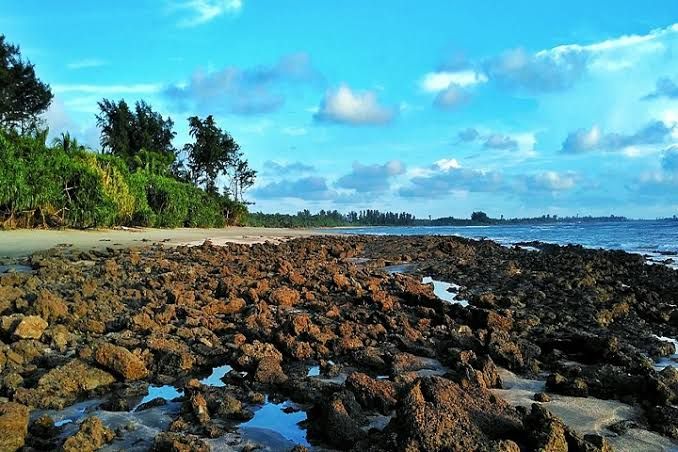
Bismillaher Rahmanir Rahim.
Assalamu Alaikum Wa Rahmatullahi Wa Barakatuhu
Dear Companions Today I want to share with you some words about the evils of killing foetuses.Welcom to this post and congratulations to all
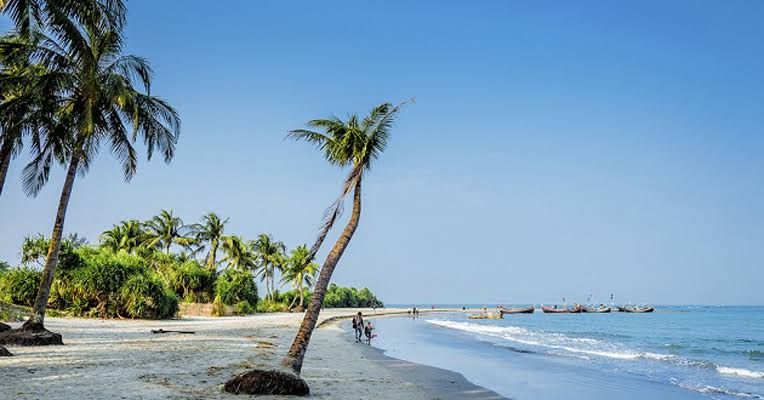
source
St. Martin, a small yet vibrant island located in the Caribbean, has immense potential to leverage its natural resources, cultural heritage, and biodiversity to transform itself into a thriving economic hub. With the right strategies in place, St. Martin can generate significant revenue, create job opportunities, and play a leading role in both local and regional economies. One of the promising sectors is the development of the island’s natural and medicinal resources, specifically medicinal plants, ecotourism, and sustainable practices. By focusing on these areas, St. Martin could potentially earn thousands of crores of rupees, benefiting not just the economy, but also preserving the environment for future generations.
- Unlocking the Value of Medicinal Plants
St. Martin is rich in biodiversity, and its tropical climate makes it a haven for a wide variety of medicinal plants. Globally, the herbal medicine market is projected to reach USD 350 billion by 2025, and St. Martin can tap into this growing industry. Many plants that grow naturally on the island have significant medicinal properties. For example, aloe vera, moringa, neem, and soursop are widely used in natural medicine for their healing properties. These plants can be cultivated and harvested in large quantities, processed into medicinal products such as oils, capsules, and creams, and exported to international markets.
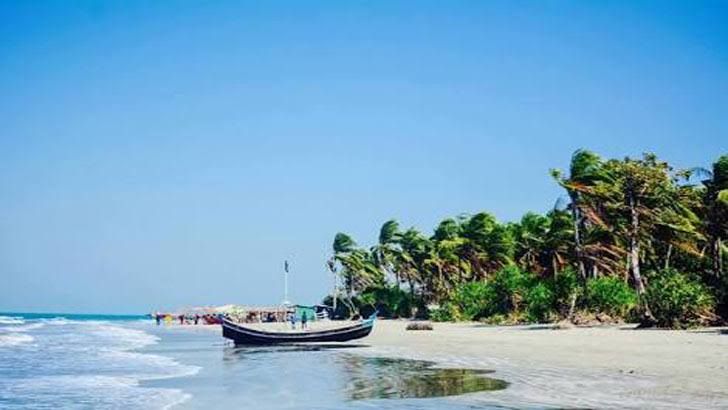
source
To capitalize on this potential, a few strategies can be implemented:
Research and Development (R&D): A dedicated R&D center can be established in collaboration with local universities and international institutions to study the medicinal properties of indigenous plants. This would ensure that products are backed by scientific evidence, making them more marketable in global markets.
Value-Added Products: St. Martin can create a range of high-value products, such as herbal supplements, essential oils, and organic skincare products. This diversification will allow the island to capture more value, rather than simply exporting raw materials.
Organic Farming and Sustainability: By promoting organic farming methods, St. Martin can position itself as a supplier of premium, sustainably sourced herbal products, which are in high demand in global markets.
- Eco-Tourism and Wellness Tourism
Tourism is already a major source of income for St. Martin, but there is significant potential to diversify into eco-tourism and wellness tourism. As global travelers increasingly seek out eco-friendly destinations and health retreats, St. Martin can capitalize on this trend by offering experiences that combine nature, wellness, and sustainability.
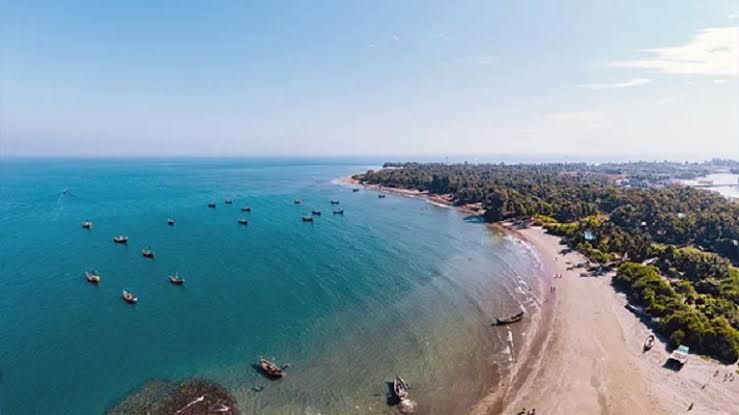
source
Eco-Lodges and Nature Resorts: St. Martin can develop eco-lodges and nature resorts that offer sustainable accommodations and immersive experiences such as guided herbal walks, bird-watching tours, and organic farm visits. These eco-friendly resorts can be marketed as a retreat from the hustle and bustle of city life, offering visitors a chance to reconnect with nature.
Wellness Retreats: Wellness tourism is growing rapidly, and St. Martin is well-positioned to attract health-conscious travelers. The island can develop wellness retreats that offer services like yoga, meditation, spa treatments, and traditional healing practices using local medicinal plants. By combining natural beauty with health and wellness, St. Martin can differentiate itself in the competitive tourism market.
Marine and Coastal Conservation Tourism: In addition to land-based eco-tourism, St. Martin can promote marine conservation tourism. With its pristine beaches and vibrant coral reefs, the island can offer experiences such as snorkeling, diving, and educational programs on marine biodiversity and conservation efforts.
- Cultural Tourism and Indigenous Knowledge
St. Martin has a rich cultural heritage, shaped by the diverse influences of African, European, and indigenous Caribbean peoples. The island’s cultural history can be used as a tool to create authentic and immersive experiences for visitors, offering a new avenue for revenue generation.
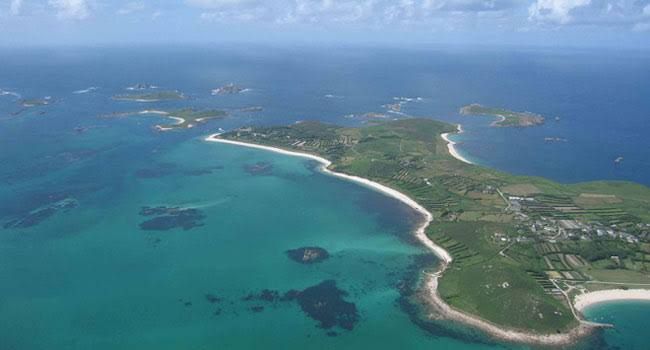
source
Heritage Tours and Cultural Festivals: St. Martin can organize heritage tours and cultural festivals that showcase its unique history, art, and traditions. These events can attract international tourists and help preserve the island’s cultural heritage. Local artists, performers, and artisans can play a key role in creating vibrant cultural experiences, providing additional economic opportunities for the community.
Indigenous Knowledge and Traditional Healing Practices: The island’s traditional healing practices, rooted in indigenous knowledge, can be incorporated into wellness tourism experiences. For example, visitors can participate in workshops on herbal medicine preparation, traditional healing rituals, and other cultural practices. This would not only provide an authentic cultural experience but also preserve and promote indigenous knowledge.
- Agricultural Innovation and Export
Agriculture has the potential to become a major contributor to the island's economy, especially if the focus shifts towards high-value crops, medicinal plants, and organic farming practices. By investing in modern agricultural techniques and developing a strong export strategy, St. Martin can create new revenue streams and reduce its dependence on imported goods.
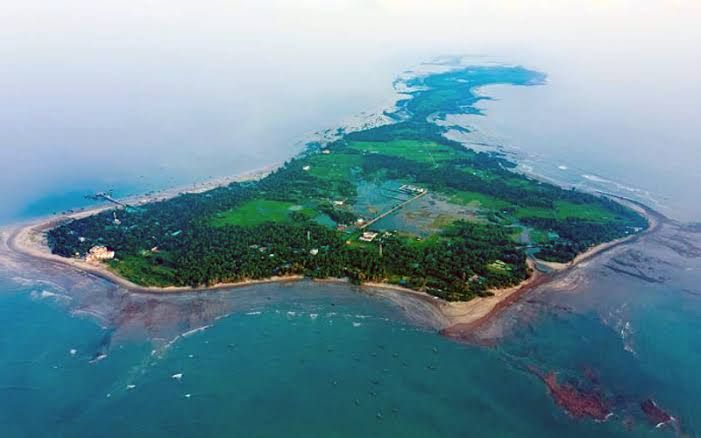
source
Greenhouses and Vertical Farming: To overcome challenges posed by the island’s limited land space, innovative farming techniques such as vertical farming and greenhouse agriculture can be adopted. These methods allow for year-round cultivation of crops in controlled environments, ensuring higher yields and better-quality produce.
Exporting Specialty Crops: In addition to medicinal plants, St. Martin can cultivate and export specialty crops such as organic fruits, vegetables, and spices. By focusing on niche markets, the island can command higher prices for its agricultural products.
- Sustainable Practices and Environmental Conservation
Sustainability should be at the heart of St. Martin’s economic development. By adopting eco-friendly practices, the island can preserve its natural resources for future generations while creating economic opportunities.
Renewable Energy: St. Martin has abundant natural resources, such as sunshine and wind, which can be harnessed to generate renewable energy. By investing in solar and wind power, the island can reduce its dependence on imported fossil fuels and create a more sustainable energy system.
Waste Management and Recycling: Implementing effective waste management and recycling programs will not only improve the island’s environmental sustainability but also create jobs in the green economy. By recycling materials and reducing waste, St. Martin can position itself as a leader in sustainable development in the Caribbean region.
- Public-Private Partnerships and Foreign Investment
For St. Martin to realize its full potential, collaboration between the public and private sectors is essential. Public-private partnerships (PPPs) can be formed to develop infrastructure, promote tourism, and invest in R&D for medicinal plants and sustainable agriculture. Additionally, the government can create incentives for foreign investors to contribute to the island’s economic development, such as tax breaks, subsidies, and streamlined business regulations.
Attracting Investment: St. Martin can actively market itself to international investors as a prime destination for eco-tourism, renewable energy, and sustainable agriculture. By creating a favorable investment climate and showcasing its unique natural and cultural assets, the island can attract investors who are looking for opportunities in these emerging industries.
source
St. Martin is uniquely positioned to become a leading player in the Caribbean economy by leveraging its rich biodiversity, cultural heritage, and natural resources. By focusing on medicinal plants, eco-tourism, wellness tourism, agricultural innovation, and sustainable practices, the island can generate thousands of crores of rupees in revenue. Collaboration between the government, local communities, and the private sector is essential for this vision to become a reality. With the right investments in infrastructure, research, and sustainable development, St. Martin can create a thriving economy that benefits all its residents while preserving the island’s natural beauty for future generations.